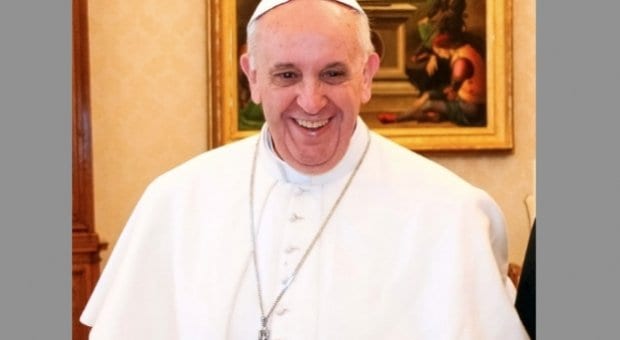With the first anniversary of his papacy days away, Pope Francis has told Italian daily Corriere della Sera that the Catholic Church could support some forms of civil unions, in an interview that also covered the role of women in the church, the ban on contraception and the sex abuse scandal.
CNN reports that even as the pontiff reaffirmed Catholic teaching that marriage is between a man and a woman, he suggested that the church has to “look at different cases and evaluate them in their variety.”
The report notes that the pope referred to various countries’ embrace of civil unions as a means of ensuring that cohabiting couples have economic security and access to healthcare.
While the pope’s comments presumably apply to straight civil unions, they could potentially signal a new openness toward the idea of civil unions for gay couples, too.
As a cardinal in his native Argentina, the pope expressed vehement opposition to the eventual legalization of gay marriage in the South American country, saying that it is “a move of the Father of Lies, who seeks to confuse and deceive the children of God.” By way of compromise, the then-cardinal suggested that the church in Argentina would be open to legal processes that would accommodate gay couples’ rights.
Last year, in a wide-ranging interview with the editor-in-chief of Italian Jesuit journal La Civiltà Cattolica, Francis elaborated on previous comments he made about homosexuality on a flight back to Rome, saying that the church doesn’t want to condemn gays.
“During the return flight from Rio de Janeiro I said that if a homosexual person is of good will and is in search of God, I am no one to judge. By saying this, I said what the catechism says,” the pope said.
He added, “A person once asked me, in a provocative manner, if I approved of homosexuality. I replied with another question: ‘Tell me: when God looks at a gay person, does he endorse the existence of this person with love, or reject and condemn this person?’ We must always consider the person. Here we enter into the mystery of the human being. In life, God accompanies persons, and we must accompany them, starting from their situation.”
Francis’s comments to Corriere della Sera follow the publication of an op/ed in the Jesuit magazine America that condemns the enactment of anti-gay laws in Uganda and Nigeria.
In the piece, entitled “When the Law Is a Crime,” the editors write that it is “particularly disturbing that such legislation is immensely popular in predominantly Christian countries like Uganda, where 40 percent of the population is Roman Catholic and the Catholic bishops have sent mixed signals about the legislation.”
They add, “When the bill was reintroduced in 2012, however, the Uganda Joint Christian Council, which includes Catholic, Anglican and Orthodox bishops, expressed support for the bill. Archbishop Ignatius Kaigama of Jos, Nigeria, meanwhile, has praised President Goodluck Jonathan for his ‘courageous and wise decision’ to sign the new law in that country.”
Even as the church supports traditional marriage, the piece states, its members cannot justify these “excessive and punitive measures.”
The editors call for the Catholic Church to “strongly advocate” for the decriminalization of homosexuality, adding that “Catholics must examine how we contribute, perhaps even inadvertently, to a culture of fear and shame.”
The United Nations Committee on the Rights of the Child recently issued a report in which it called on the Vatican to reassess its teachings on contraception and sexuality and to review its approach to homosexuality.
“The Committee also urges the Holy See to make full use of its moral authority to condemn all forms of harassment, discrimination or violence against children based on their sexual orientation or the sexual orientation of their parents and to support efforts at international level for the decriminalisation of homosexuality.”


 Why you can trust Xtra
Why you can trust Xtra


